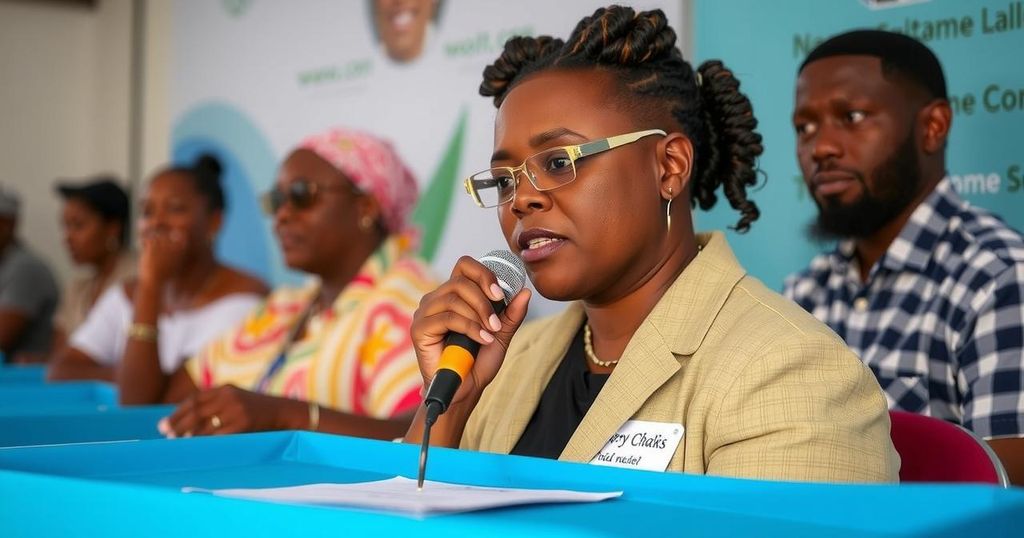Gabon’s military junta announced that 91.8 percent of voters approved a new constitution in a recent referendum, allowing two seven-year presidential terms and limiting candidates to Gabonese citizens. The vote, however, faces scrutiny over transparency and potential authoritarianism. The transitional president claims it is a step forward in governance, while critics argue it could entrench dictatorship.
Gabon’s military leaders have declared that a new constitution has received overwhelming support in a recent referendum, with provisional results indicating that 91.8 percent of voters approved the proposed changes. This vote, which attracted 53.54 percent turnout from the 860,000 registered voters, introduces significant alterations including limiting presidential terms to two seven-year periods, eliminating the prime minister role, and preventing dynastic power transitions. The new constitution exclusively allows Gabonese citizens with a Gabonese spouse to run for presidency, effectively disqualifying former ruler Ali Bongo Ondimba and his lineage. Although official propaganda heavily influenced the campaign, transitional President Brice Oligui Nguema hailed the vote as a milestone for the nation. While many citizens expressed trust in the junta, critics warned that the new constitution paves the way for authoritarian rule. The interior ministry has promised to ensure the referendum was conducted transparently, despite skepticism about corruption and governance stemming from Bongo’s regime.
The context of the recent referendum in Gabon is set against a backdrop of political upheaval initiated by a military coup that ousted Ali Bongo in August 2023. Bongo had ruled for 14 years, inheriting power from his father, and was accused of fostering an environment of corruption and ineffective governance. In the wake of the coup, the transitional government aims to establish a new constitutional framework that would theoretically safeguard against authoritarian rule by limiting presidential terms and implementing stringent eligibility requirements for candidates. However, this has raised concerns regarding the consolidation of power within the military leadership.
In summary, the approval of Gabon’s new constitution represents both a significant shift in governance and a potential consolidation of power within the military junta. While the results demonstrate public support, concerns linger regarding the implications for democracy and governance in the oil-rich nation. Observers await the final official count from the constitutional court to verify these provisional results and assess the future political landscape leading up to the 2025 presidential elections.
Original Source: www.tiogapublishing.com






